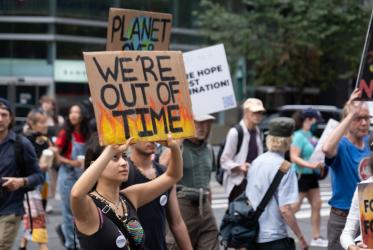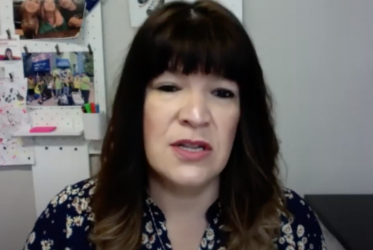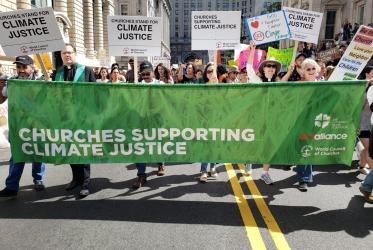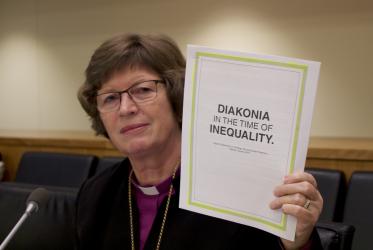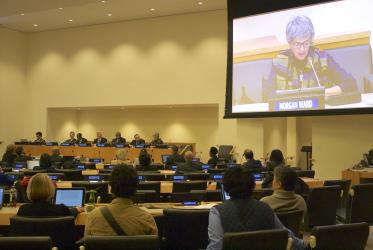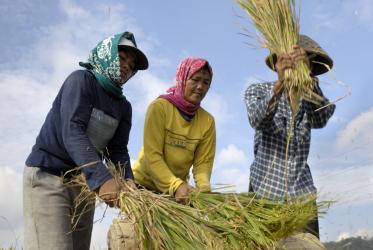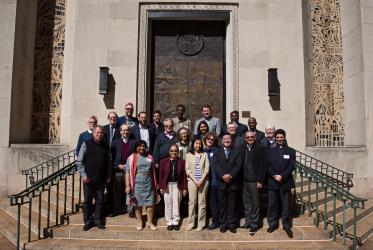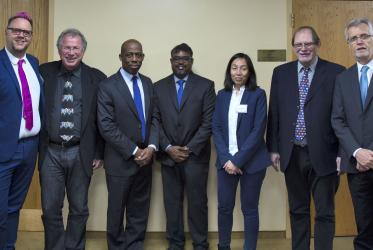Displaying 1 - 20 of 20
20 September 2023
Climate emergency: faith-based groups pledge to amplify prophetic voice
25 September 2019
As Climate Summit begins, churches call for action now!
23 September 2019
Sustainable resourcing for sustainable development
05 February 2019
5th Annual Symposium on the Role of Religion and Faith Based Organizations in International Affairs
29 January 2019
Conference Room 2, United Nations secretariat, New York
Panel addresses economic and climate injustice
24 April 2018
New economic architecture focus of New York meeting
22 April 2018
Responsible agriculture investments theme of WCC session
16 October 2017
"We have our work cut out for us"
10 August 2017
World Social Forum sows seed of hope in global north
17 August 2016
New Executive Committee members elected in Trondheim
28 June 2016
Churches engage in development dialogue on Africa
06 March 2013
